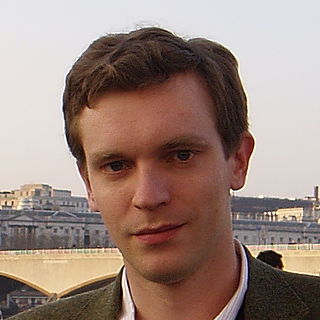A Quote by E. B. White
A poet dares to be just so clear and no clearer; he approaches lucid ground warily, like a mariner who is determined not to scrape his bottom on anything solid. A poet's pleasure is to withhold a little of his meaning, to intensify by mystification. He unzips the veil from beauty, but does not remove it. A poet utterly clear is a trifle glaring.
Related Quotes
One of the appeals of William Carlos Williams to me is that he was many different kinds of poet. He tried out many different forms in his own way of, more or less, formlessness. He was also a poet who could be - he was a love poet, he was a poet of the natural order and he was also a political poet.
One of the surest tests of the superiority or inferiority of a poet is the way in which a poet borrows. Immature poets imitate mature poets steal bad poets deface what they take and good poets make it into something better or at least something different. The good poet welds his theft into a whole of feeling which is unique utterly different than that from which it is torn the bad poet throws it into something which has no cohesion. A good poet will usually borrow from authors remote in time or alien in language or diverse in interest.
A true poet is more than just a man who can write a poem with a pen. A true poet writes poetry with his very life. A true poet doesn't use poetic devices to con the heart of a woman but uses the beauty of all that is poetic to serve, cherish, and express love to the heart of a woman. Just as a true warrior is not a conqueror of femininity but a protector of femininity, a true poet is not just a wooer of a woman's heart but one who knows how to nurture and plant love in a woman's heart. Simply put, a true poet is a man who knows how to be intimate with a lover - first and foremost with Christ.
One more royal trait properly belongs to the poet. I mean his cheerfulness, without which no man can be a poet,--for beauty is his aim. He loves virtue, not for its obligation, but for its grace; he delights in the world, in man, in woman, for the lovely light that sparkles from them. Beauty, the spirit of joy and hilarity, he sheds over the universe.
The poet is born with the capacity of arranging words in such a way that something of the quality of the graces and inspirations he has received can make itself felt to other human beings in the white spaces, so to speak, between the lines of his verse. This is a great and precious gift; but if the poet remains content with his gift, if he persists in worshipping the beauty in art and nature without going on to make himself capable, through selflessness, of apprehending Beauty as it is in the divine Ground, then he is only an idolater.



































